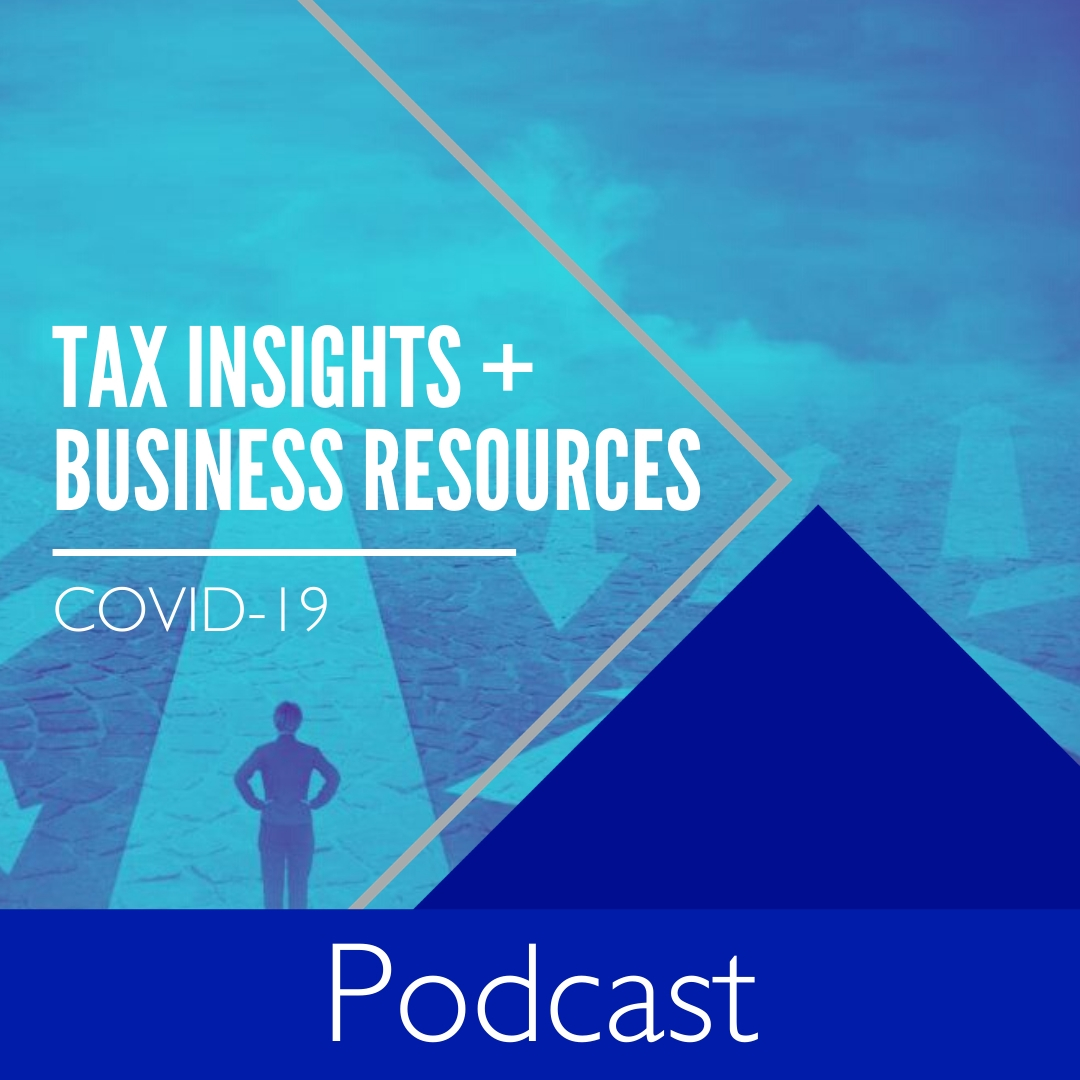At Hawkins Ash CPAs, we will continue to monitor the news and official government directives about coronavirus (COVID-19) and make changes to policies based upon facts as they arise. This podcast addresses some of the legislative updates as of March 18, 2020.
There is a lot going on right now, and we just thought that in today’s show we need to address what’s happening with COVID-19, and how it really is starting to impact taxes right now.
Absolutely. It’s certainly been an interesting couple weeks, with the coronavirus continuing to wreak havoc on the financial markets, which is leading to the closure of businesses, schools and many people doing the “activity of the year”: Social distancing.
Clearly, this virus has had an impact on every person in the United States, as well as the world. So today I want to talk about some of the things that have been done in the last couple weeks, and I know that there’s a lot of questions.
So listening to the Treasury Secretary, it sounds like people are getting extensions to pay any tax owed. Can you walk us through that?
Sure. What we understand at this point is that any payments that you would have owed at April 15 [2020] have been extended out for 90 days. So those payments don’t need to be made at this point until July 15 [2020].
Now, this affects individuals with taxes under $1 million owed, and corporations that owe less than $10 million. So as you can see, it’s going to cover the majority of the population.
I think the million dollar number was used for individuals because a lot of those businesses report their small business income on their return. They essentially pay tax on their return, which is why they use the $1 million number for individuals. I think they wanted to make sure that all of those small businesses were covered.
So although it wasn’t specifically said, the one thing that’s still kind of hanging out there is what happens to people who pay quarterly estimates, which are normally due on April 15 and June 15? My guess is that we’re going to learn that those are also due on July 15, but we just don’t know at this point—and we also don’t really know what the states are going to do at this point, so that’s the part that’s still up in the air.
But it also doesn’t sound like there is an automatic extension to file, correct?
They had talked about that for a long time on having the automatic extension, and they ended up not doing it. Now I’m not saying that they’re not going to do it, but for right now, you are still required to file your return by April 15 or do an extension.
There is also talk of a mandatory paid sick leave, is that correct?
There is. So if it’s passed [UPDATE 3-19-2020: This has been passed], it’s going to affect employers with under 500 employees, and the employees must not be able to work or be able to telework.
How does that actually work?
Everything is still pretty new, but employees are going to get paid for up to two weeks from their employer, and the employer will end up getting reimbursed for that via tax credits.
What hours actually qualify for paid leave?
Essentially there are two rates that the House bill currently has and that the Senate bill may be or should be passing soon [UPDATE 3-19-2020: This has been passed].
The first one is it will pay somebody up to $511 per day (or $5,100) if they are subject to federal or state or local quarantines or isolation orders, or if their health care provider makes them do self-quarantine, or if they are experiencing symptoms, they’ll get that higher amount of up to $511 per day.
$200 per day if you have things like being in isolation or quarantine because you have to care for a sick child and those types of situations.
Then there’s also family and medical leave, correct?
There is. So that can last up to 12 weeks, where the employer will pay an employee up to $200 per week for up to 12 weeks.
How does the employer get this credit if they have to?
As part of the bill that’s written currently [UPDATE 3-19-2020: This has been passed], they’ll get a tax credit as they do their quarterly payroll taxes. As you know, employers have to pay Social Security and Medicare taxes on that wage. When they file their quarterly reports, they’ll get the credit on there to reimburse them for this paid leave.
I’m sure that there’s going to be a lot of changes coming in the next couple days, so we just have to continue to stay on top of this and continue to connect with Hawkins Ash CPAs if there are questions.
Read An Important Message from Our Firm





